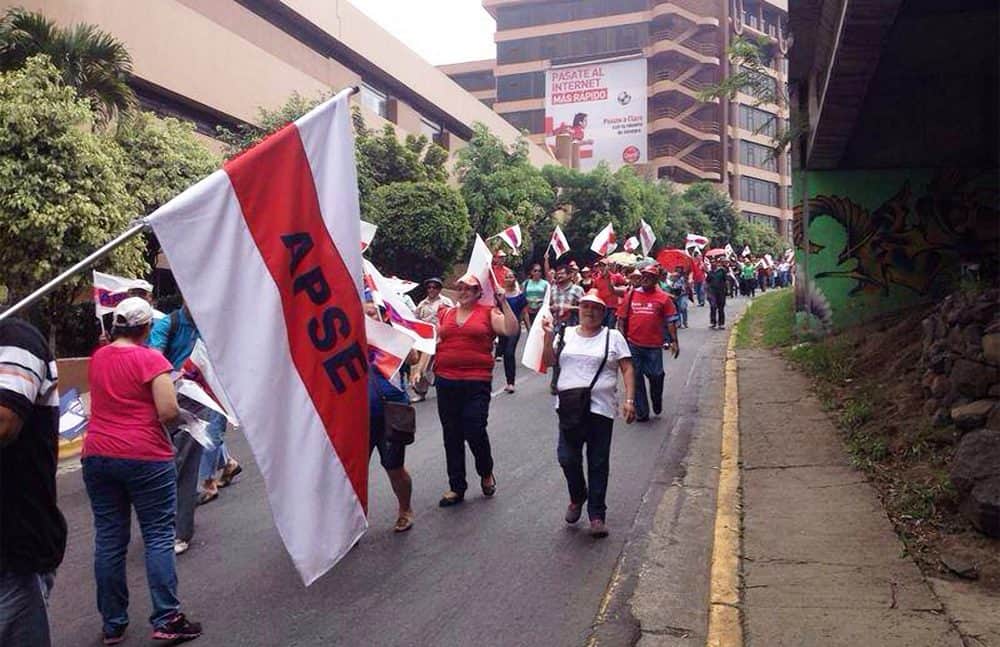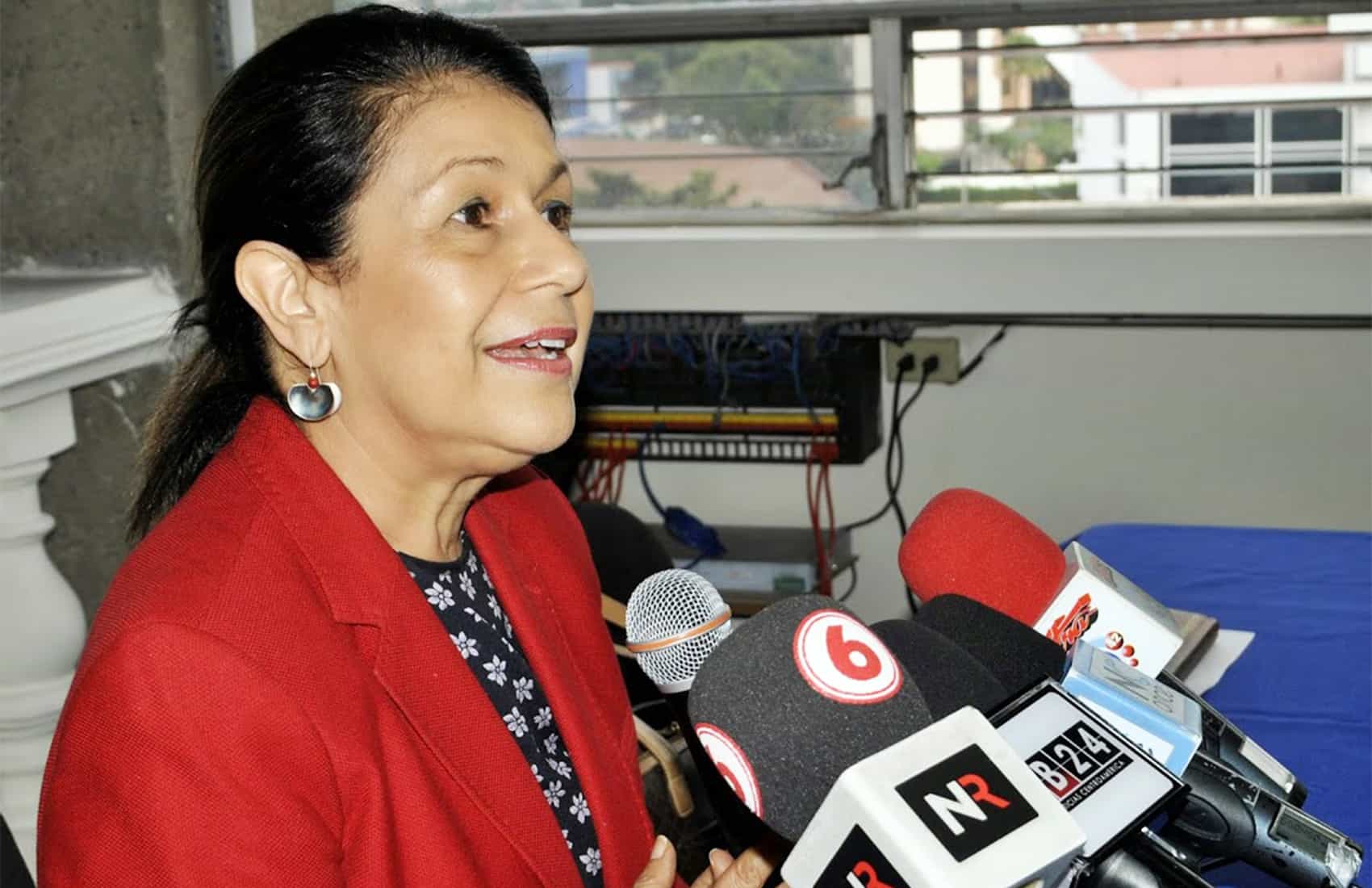Education Minister Sonia Marta Mora on Friday morning met with supervisors of Costa Rica’s 27 school districts and asked for a full report of teachers who do not report to work on Monday.
At that same time, a small group of educators and union members blocked passage at La Hispanidad roundabout, east of San José, for three hours. Union leaders reported that similar blockades ocurred in the provinces of Puntarenas, Guanacaste and Alajuela.
Mora said discussions also focused on planning on how to resume classroom lessons. “There is not a single reason for teachers to keep striking next week,” she said.
On Thursday, leaders of the National Association of Educators (ANDE) and the Costa Rican Educators Union (SEC) — two of the three unions on strike — asked MEP at a press conference to resume negotiations under the conditions of an agreement drafted Wednesday by members from both sides. Unions had rejected that agreement the same day following a vote by representatives from all seven provinces.
“We now are aware that we made a mistake. But we are not ashamed to say it, and we are ready to correct the mistake we made yesterday, [Wednesday],” ANDE President Gilberto Cascante said.
However, leaders of the High School Teachers Association (APSE) on Thursday said they still would not negotiate. Union president Ana Doris González justified the decision by saying, “it would be disrespectful to the decision made by a majority of the union’s representatives.”
Mora said she has not received any formal requests to resume talks, adding that officials only would do so after teachers go back to work.
President Luis Guillermo Solís on Friday morning said he was pleased that at least two of the unions decided to resume negotiations, but he added that they first must return to schools on Monday.
“There is no reason for educators not to return to work. I know the Costa Rican people are clear that enough time has been invested in solving the vast majority of pending payment issues, although I must admit that a few cases are unresolved, and I know they must be resolved as soon as possible,” Solís told the press during a visit to a morning practice of the World Cup-bound national football team.
The president also said it should be clear that many of the teachers’ financial problems are caused by personal debts.
“There is an important percentage of teachers, some 30 percent, who receive less than ₡100,000 (some $185) every month due to a large amount of personal debts they have,” he said.
Solís also criticized the attitude of union leaders, who he said refuse to negotiate an end to the national strike, which is heading into a fourth week.
“There is a small group of union leaders who still do not understand that current conditions already are suitable for them to go back to work. I hope this can be solved in the next few hours. We reached an agreement, and these union leaders need to see the issue from the perspective of most educators, who now are willing to return to the classrooms,” he told reporters.
The teachers’ strike on Friday reached its 26th day.







